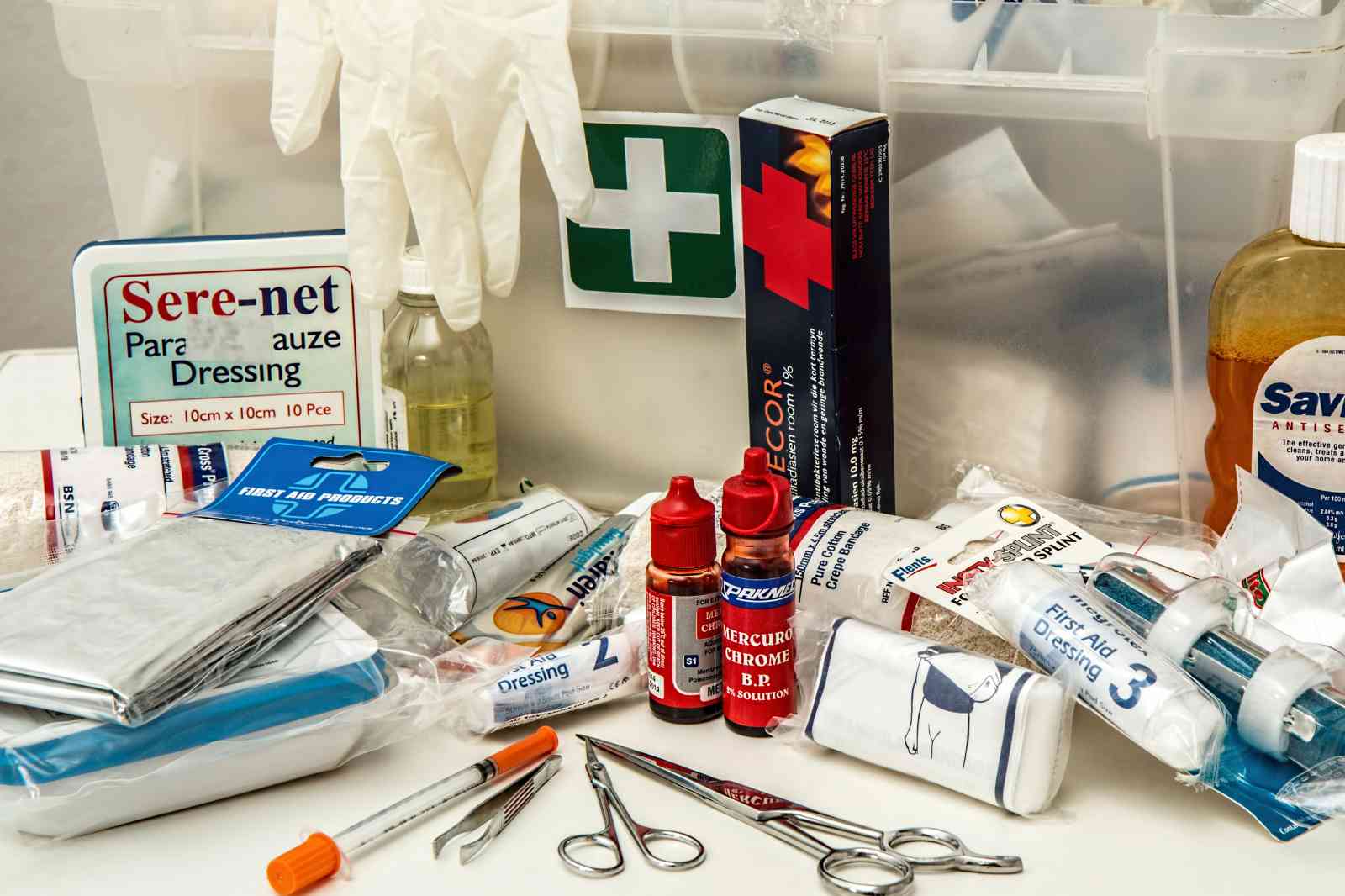Hurricane Season 2024 The Ultimate Guide for Pinellas County Families
When hurricane season approaches, residents of Pinellas County, Florida, feel a familiar sense of urgency. Preparing for hurricanes is not just a task—it’s a necessity. This comprehensive guide aims to equip families and homeowners with the vital information and practical steps needed to safeguard their homes, tech, and loved ones.
The Importance of Early Preparation
Hurricane season might seem far off, but early preparation is crucial. For parents and residents in Pinellas County, taking proactive measures can mean the difference between safety and calamity. This guide offers insights into understanding the hurricane season, preparing your home, protecting your tech, ensuring health and safety, planning evacuations, and utilizing community resources.
Understanding Hurricane Season
When Does Hurricane Season Occur?
Hurricane season officially starts on June 1 and ends on November 30. However, the peak months are August and September, when ocean temperatures are at their highest, fueling these powerful storms.
Key Weather Patterns
Florida’s hurricane season is heavily influenced by several weather patterns, including the warm waters of the Atlantic Ocean and the Gulf of Mexico. The combination of warm waters, moist air, and specific wind patterns creates the perfect breeding ground for hurricanes. Understanding these factors can help residents anticipate and prepare for potential hurricanes.
Factors Influencing Hurricanes
Several factors determine the severity and frequency of hurricanes, including sea surface temperatures, atmospheric conditions, and the presence of other weather systems. Notably, the El Niño and La Niña phenomena can significantly impact hurricane activities, either suppressing or enhancing storm development.
Preparing Your Home
Investing in a Generator and Emergency Supplies
Power outages are common during hurricanes. Having a generator can keep essential appliances running and provide some comfort during these times. Additionally, stock up on emergency supplies such as water, non-perishable food, batteries, and flashlights. A well-prepared supply kit can make a huge difference during extended power outages.

Creating a Family Disaster Plan
Every family should have a disaster plan. This includes identifying a safe room in the house, knowing the emergency exits, and establishing a communication plan. Ensure everyone in the family knows what to do and where to go in the event of a hurricane.
Protecting Your Tech and Data
Backing Up Important Data
In today’s digital age, losing data can be devastating. Regularly back up important documents, photos, and files to cloud storage or external hard drives. This ensures that even if your devices are damaged, your data remains safe.
Securing Electronic Devices
Protect your devices from power surges by using surge protectors and unplugging non-essential electronics during a storm. Additionally, consider waterproof cases or bags for essential devices to prevent water damage.
Power Surge Protection
Invest in high-quality surge protectors to shield your electronic devices from sudden power surges. This small investment can save you from costly repairs or replacements after a storm.
Health and Safety Precautions
Preparing a First-Aid Kit
A well-stocked first-aid kit is essential during hurricane season. Include basics like bandages, antiseptics, pain relievers, and any prescription medications your family needs. Being prepared for minor injuries can prevent unnecessary trips to the hospital during a storm.

Essential Items for a Post-Hurricane First-Aid Kit
- Bandages and Gauze: To cover cuts, scrapes, and wounds.
- Antiseptics: For cleaning wounds and preventing infections.
- Pain Relievers: Such as ibuprofen or acetaminophen for minor aches and pains.
- Prescription Medications: Any necessary prescriptions for family members.
- Tweezers: For removing debris or splinters.
- Scissors: A multi-use tool for cutting bandages or clothing.
- Sterile Gloves: For handling wounds or medical emergencies hygienically.
- Thermometer: To monitor for fever or illness.
- Antibiotic Ointment: To apply on minor injuries to prevent infection.
- Hydrocortisone Cream: To soothe rashes and skin irritations.
- Adhesive Tape: To secure bandages or gauze.
- Alcohol Wipes: For sterilizing surfaces or cleaning skin.
- Eye Wash Solution: To rinse out contaminants from eyes.
- Emergency Contact Information: Written down in case phones are inaccessible.
- CPR Face Shield: If someone needs resuscitation.
- Instant Cold Packs: For reducing swelling or treating injuries.
- Safety Pins: For securing bandages or slings.
Preparing Food for a Hurricane
When a hurricane is imminent, having a well-thought-out food plan can alleviate some of the stress and ensure your family stays nourished during and after the storm. Here are some guidelines to help you prepare:
Stocking Up on Non-Perishable Foods
Non-perishable foods are crucial as they do not require refrigeration and have long shelf lives. Aim to have at least a three-day supply for each family member. Consider including canned goods like beans, vegetables, fruits, and meats, as well as peanut butter, jelly, crackers, and cereals. Don’t forget easy-to-prepare items like instant noodles or oatmeal, which only require hot water to prepare.
Selecting Nutrient-Rich Options
While it can be tempting to stock up on comfort foods, prioritize nutrient-rich options to keep everyone healthy and energized. Dried fruits, nuts, seeds, and protein bars are excellent choices. Ensure you have a balance of carbohydrates, proteins, and fats.
Keeping Hydrated
Water is essential. Store at least one gallon of water per person per day for drinking and sanitation purposes. Having a water filtration system or purification tablets on hand can be beneficial in case your water supply runs out or becomes contaminated.
Manual Food Preparation Tools
Invest in manual can openers, non-electric cookware like camping stoves or portable grills, and sufficient fuel to last several days. These tools are indispensable when power outages make electric appliances unusable.
Pet Food and Supplies
If you have pets, don’t forget to stock up on their food and any necessary medications. Ensure you have enough supplies to last at least a week, including litter for cats or other specific items your pets may need.
Safe Food Storage
Make sure stored food is kept in a cool, dry place. Use airtight containers to prevent contamination and extend shelf life. Familiarize yourself with the storage guidelines for different types of food to avoid spoilage.
By thoughtfully preparing your food supply, you can ensure your family remains well-nourished and comfortable during hurricane season, reducing one more element of stress in challenging times.
Staying Informed About Local Health Advisories
Stay updated on local health advisories and guidelines, especially in the aftermath of a hurricane. Waterborne diseases and other health hazards can pose risks; knowing how to handle these situations is crucial.
Maintaining Hygiene and Sanitation
During and after a hurricane, maintaining hygiene can be challenging. Stock up on hygiene products like hand sanitizers, disinfectants, and clean water to ensure your family stays healthy.
Evacuation Plans and Routes
Creating an Effective Evacuation Plan
Develop a clear evacuation plan that includes multiple routes and destinations. Identify local shelters and have a list of contacts you can reach out to. Ensure every family member knows the plan and has a role to play.
Identifying Safe Locations
Identify safe locations both within and outside of Pinellas County. Consider staying with friends or family if evacuation orders are given. Familiarize yourself with the quickest routes to these safe spots.
Staying Informed About Local Evacuation Orders
Keep a close eye on local news and weather updates. Evacuation orders can be issued with little notice, so being informed can give you the time needed to execute your plan efficiently.
Community Resources and Support
Local Organizations and Resources
Many local organizations offer support before, during, and after a hurricane. Familiarize yourself with resources such as the Pinellas County Emergency Management, American Red Cross, and local shelters. These organizations can provide essential information and assistance.
Utilizing Community Support Networks
Engage with your community and establish a network of support. Neighbors can share resources, provide assistance, and offer moral support during tough times. A strong community bond can make a significant difference in hurricane preparedness.
Accessing Online Resources
There are numerous online resources available that provide updates, tips, and support during hurricane season. Websites like the National Hurricane Center and local government sites are invaluable for real-time information.
Hurricane Prep in Pinellas County
Preparing for hurricane season in Pinellas County is not just about protecting property; it’s about ensuring the safety and well-being of your family. By understanding the hurricane season, preparing your home, protecting your tech and data, taking health and safety precautions, planning evacuations, and utilizing community resources, you can face this season with confidence.
Start your preparations today and encourage others to do the same. Share this guide with friends and family to spread awareness and ensure that everyone is ready for whatever this hurricane season brings. Stay safe, stay prepared, and remember that a little preparation can go a long way. Remember to give us a call or schedule an appointment with your primary care doctor to make sure you have adequate refills, up to date health information and more.
